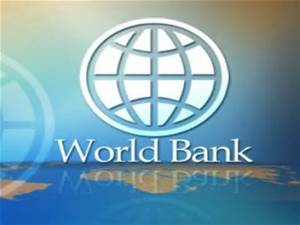Nigeria’s Economic Outlook: A Mixed Bag of Projections and Challenges
Nigeria’s economic future presents a complex picture, with varying projections from international institutions and persistent challenges related to poverty and inflation. The World Bank anticipates moderate growth, driven by non-oil sectors and a rebound in oil production, projecting a 3.6% expansion in 2025, rising to 3.8% by 2027. This optimism stems from macroeconomic reforms stabilizing the business environment and improved performance in sectors like finance, information technology, and telecommunications. However, the International Monetary Fund (IMF) offers a more cautious outlook, predicting slower growth of 3.0% in 2025, declining further to 2.7% in 2026, citing structural constraints and weaker oil receipts.
Inflation remains a significant concern. While the World Bank projects a decline to 22.1% in 2025 and further to 15.9% by 2027, based on revised CPI figures, the IMF paints a less rosy picture, forecasting an average of 26.5% in 2025, soaring to 37.0% in 2026. The IMF attributes this persistent inflation to structural inefficiencies, weak supply response, and exchange rate volatility, despite ongoing reforms. The rebasing of the Consumer Price Index by the National Bureau of Statistics in January 2025, while leading to an initial drop in reported inflation, underscores the ongoing cost-of-living pressures faced by Nigerians.
The naira’s performance adds another layer of complexity. Identified by the World Bank as one of Africa’s worst-performing currencies in 2024, losing over 40% of its value, the naira has shown signs of stabilization in early 2025 following exchange rate unification and a transition to a market-determined FX regime. On the external front, Nigeria’s current account position is expected to remain relatively strong. The World Bank projects a slight increase in the current account surplus, while the IMF forecasts a narrowing surplus, cautioning that lower oil prices could negatively impact the external balance. Conflicting projections from other institutions like JP Morgan and Fitch Ratings further highlight the uncertainty surrounding Nigeria’s economic trajectory.
Poverty in Nigeria: A Persistent Crisis
Amidst these economic projections, a stark reality emerges: Nigeria bears the heavy burden of extreme poverty. According to the World Bank, Nigeria is home to 15% of the world’s extremely poor, with over 106 million Nigerians living on less than $2.15 a day. This grim statistic places Nigeria at the epicenter of the global poverty crisis, despite its status as Africa’s largest economy. With Sub-Saharan Africa accounting for a disproportionate share of the world’s extreme poor, Nigeria alone contributes approximately 15% of the global total. The World Bank’s report highlights the concentration of poverty in a few countries within the region, with Nigeria identified as the single largest contributor, followed by the Democratic Republic of Congo, Ethiopia, and Sudan.
The report warns that poverty in resource-rich and fragile economies like Nigeria is projected to worsen unless structural reforms are implemented urgently. While other African nations have made progress in poverty reduction, driven by strong agricultural exports and stable institutions, Nigeria’s poverty rate is expected to increase. This underscores the urgent need for improved service delivery, particularly in countries with rapidly expanding populations like Nigeria and the Democratic Republic of Congo. PwC’s estimate of an additional 13 million Nigerians falling into poverty in 2025 further compounds the crisis, adding to the urgency of effective intervention.
Government Response and IMF Recommendations
The Nigerian government has initiated social intervention programs to address the poverty crisis, but implementation has been slow and often hampered by corruption. The IMF acknowledges the government’s efforts to stabilize the economy through fiscal and monetary measures, including fuel subsidy removal, halting monetary financing of the fiscal deficit, and foreign exchange market reforms. However, the IMF emphasizes that these reforms have yet to significantly impact the majority of citizens, with poverty and food insecurity remaining high.
The IMF recommends channeling fiscal savings from subsidy removal into essential public investments and accelerating the delivery of targeted cash transfers to address food insecurity. Furthermore, the IMF highlights the increasing budgetary pressure faced by Nigeria due to falling global oil prices, adding to fiscal challenges. The Managing Director of the IMF, Kristalina Georgieva, noted that while oil importers might benefit from lower prices, slowing global growth will affect all countries, including Nigeria, which faces budget pressure as an oil producer. This emphasizes the need for Nigeria to diversify its economy and reduce its reliance on oil revenue to mitigate the impact of global economic fluctuations.
Conclusion: A Path Forward Amidst Challenges
Nigeria’s economic outlook presents a complex and evolving landscape. While the World Bank projects moderate growth driven by non-oil sectors and a rebound in oil production, the IMF offers a more cautious perspective, highlighting structural constraints and the impact of weaker oil receipts. Inflation remains a persistent challenge, with varying projections from different institutions. The most pressing issue remains the pervasive poverty crisis, with Nigeria accounting for a significant portion of the world’s extremely poor. The government’s efforts at economic stabilization and social intervention require strengthened implementation and greater transparency to effectively address poverty and food insecurity. Diversification away from oil dependence and robust structural reforms are crucial for Nigeria to navigate the challenges ahead and build a more inclusive and sustainable future.














